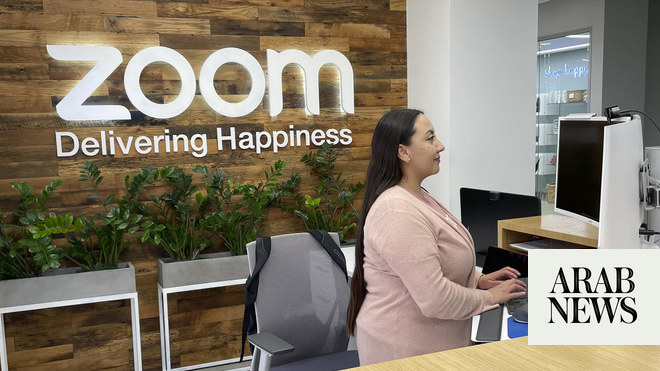
The global pandemic and lockdown restrictions forced many UK businesses to move employees to remote working, practically overnight.
Four company bosses speak about the upsides and downsides of working from home versus the traditional office-based model as they consider what the future might look like for their businesses and staff.
‘We can now recruit from different parts of the country’
Dan Newns, the co-founder of Jump24, a Birmingham-based company specialising in web applications, initially struggled with the idea of operating entirely remotely when coronavirus forced his premises to shut.
“We’ve always had an office, and just six months before the pandemic began we had signed a three-year lease. Then everything went remote. Office collaboration was a big part of the company, but everyone has been working from home since last March and I expect that to continue.
“Our team is relatively young, so not everyone has been vaccinated yet. I wouldn’t ask anyone to put themselves at risk by using public transport or to suffer anxiety from working in a shared space right now.”
Working remotely has come with its challenges, however. “It’s not always practical from a team building perspective, and some things are taking longer than they used to. A staff survey we did a few weeks ago surprised me a bit. Some people said they’re less productive working from home, and some would like the option of coming back in.”
The 38-year-old plans to use the office then, after a break clause, to use a smaller space for meetings at the start of new projects.
But going remote has brought one huge plus, Newns says. “We’ve always struggled a bit with Birmingham from a recruiting perspective. We can now recruit from parts of the country it would have been impossible to commute from. We just hired someone from Leeds, and we’re looking further afield, which is amazing.”
‘An office-based business feels very dated now’
Rhian Sherrington, 51, is founder of the Women in Sustainability Network that provides coaching and workshops for professional women interested in sustainability.
“We gave up our Bristol office in December 2019, and planned to open up a new one in Swansea. But just as we had shortlisted some spaces, the pandemic landed and I was working at the dining room table.
“While I’ve missed not seeing my team in person, Zoom has made meetings very efficient.”
Nevertheless, the move to remote working created some complications. Sherrington had a 50% drop in income and prices had to be reduced, because so much online was free.
“But operating completely online has clearly worked as we have opened a new hub in Hertfordshire, and one in New York. There seems no merit in forcing anyone to come into a central location. So long as we get a team Christmas party, I’m happy to keep this up.
“An office-based business feels very dated now.”
‘Closing the office has allowed us to grow’
Nick Ellison, 33, from Malvern, is the managing director of a digital technology consultancy, Purr.
“When the first lockdown looked likely, we were in a fortunate position with our central London office as the lease had never been formally signed. I took a van and a helper, emptied the whole place and gave the keys back.
“We’ve had a flexible approach to the office for a couple of years – but I think it surprised the staff how little they missed it and during the pandemic a number went on to move out of London. We decided fairly early on that we’d permanently not go back to an office, but opt for local coworking space for staff and book occasional meeting rooms in London instead.”
Since going fully remote, the company has grown significantly. “We went from eight people to 16, and invested the savings in wages and a laptop upgrade for everyone. But we want people to be based within a couple of hours of London so we can get together when we want to. When we do, we pay all expenses and travel time.”
But there are also downsides, Ellison concedes. “In our industry it’s crucial to have that London connection, it’s important to our clients. We’ve been testing various London spaces for meetings, on a pay-as-you-go basis rather than a monthly membership.
There’s also the issue of maintaining oversight of staff who are working from home. “People tend to get more work done remotely, but also feel more burnt out. There’s a tendency for staff to work through their lunch, as they want to demonstrate that they’re working hard, and they feel exhausted by the end of the day. Nobody should feel left to their own devices, you have to keep checking in.”
‘Working remotely became untenable for us’
Lindsey Webster, a director of a small architecture studio in southwest London that she runs with her husband, has decided to buck the trend of remote working.
“We started up in 2019 and were working from our front room with two other designers when Covid struck. This quickly became untenable and claustrophobic, with a seven- and a nine-year-old having to be homeschooled.
“Design needs collaboration, preferably in person. Despite the business hanging by a thread we borrowed more money and did the opposite [to the home working trend]: we took a corner shop in the high street in East Sheen and turned it into a studio.
“We have found that opening an office has improved the way we work. We have an apprentice, and a lad doing work experience. How are they possibly supposed to learn remotely?
“By revitalising a disused shop, we have also taken care of our marketing needs as thousands of cars pass us daily. We have been living month by month, but we’ve recently seen an increase in sales. What’s been particularly lovely is that we’ve become a part of the community by being on the high street.”












